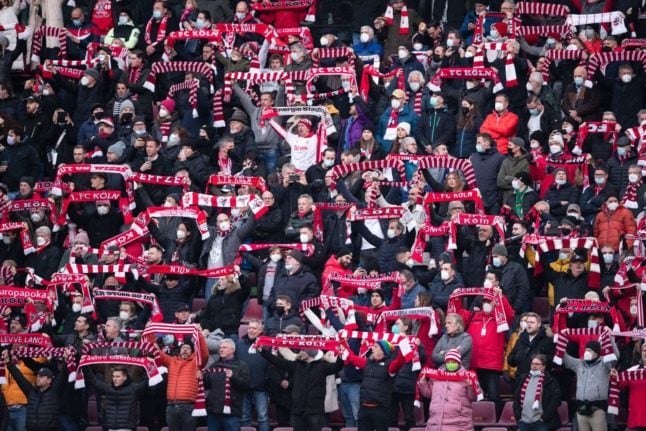Images of the shoulder-to-shoulder crowd at Saturday’s first division football match between Cologne and Monchengladbach sparked nationwide headlines, with many commentators despairing at the lack of masks and social distancing.
“At a time when hard-hit regions are cancelling Christmas markets and tough measures are being introduced” the full stadium “is very difficult to understand”, outgoing Merkel’s spokesman Steffen Seibert told reporters.
Local officials in the western state of North Rhine-Westphalia said Cologne’s full stadium was justified because supporters had to show they were fully vaccinated or recovered before entering (Germany’s so-called 2G rules).
READ ALSO: Germany sets up crisis team amid calls for new measures
But critics said the crowd size was irresponsible at a time when Germany is buckling under a ferocious coronavirus fourth wave, with many regions running out of intensive care beds as infection rates hit record highs.
The weekend match also coincided with the first reports of suspected cases of the Omicron variant in Germany.
Another Bundesliga game at the weekend, Leipzig versus Leverkusen, was played in an empty stadium because of local coronavirus curbs in the eastern state of Saxony.
Under Germany’s federal system, the country’s 16 regions have significant powers to decide their own coronavirus approach, but Germany’s interior ministry on Monday slammed the patchwork of measures that has emerged.
“This unevenness across different states when it comes to large events, and not just sports, is extremely unsatisfactory,” said Steve Alter, the spokesman for acting Interior Minister Horst Seehofer.
Anger at the Cologne football crowd comes on the heels of widespread condemnation of the city’s carnival celebrations earlier this month, which drew tens of thousands of revellers into the streets.
Germany’s surge in Covid-19 cases comes at an awkward time for Merkel’s government, which is acting in a caretaker capacity before a new coalition government takes over in coming days.
The country registered another 29,364 new cases on Monday, according to the Robert Koch Institute, and another 73 deaths.



 Please whitelist us to continue reading.
Please whitelist us to continue reading.
Member comments